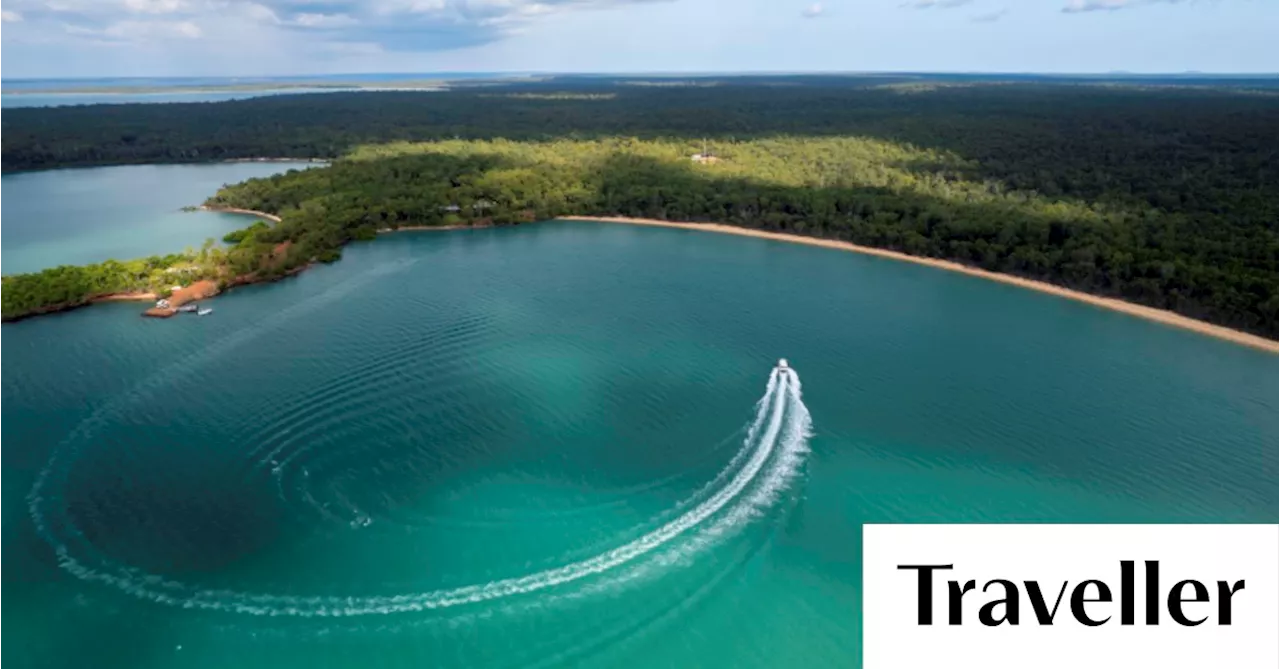Why would anyone travel to the shark and croc infested waterways of the Cobourg Peninsula? There are plenty of reasons...
It’s reasonable to expect the Cobourg Peninsula will be chock full of wild things but a glass of chilled champagne on arrival has a way of softening reality.
“Snakes? We have lots of them,” she chirrups. There are night tiger and whip snakes and olive pythons nestling under the staff quarters. “It’s the circle of life,” she soothes, then recommends a move to the bar for a green ant gin and tonic. Indigenous people experienced two failed attempts by the British to settle this remote part of northern Australia. A third settlement was established at Port Essington in 1838, but after 11 years plagued by natural disasters and disease it was abandoned in 1849. The ruins of Victoria are all that’s left of a failed settlement on country that remains virtually untouched by Europeans.
Other tree barks will make a canoe or warm the aching belly of a birth mother. The sac of the hairy processionary caterpillar can be used as a bandage with a soothing paste and the yellow rooted kerosene tree will make bush string or fish poison. Spear shafts, hot packs, resin boiled in a bailer shell as adhesive, twines for ropes and seeds for contraception: the practical resources of life on country are simply astonishing.
